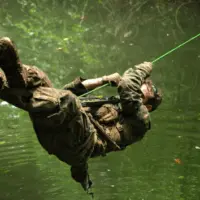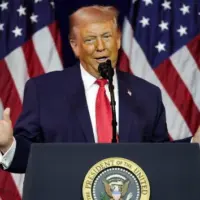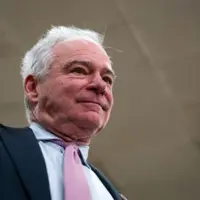
(NEW YORK) — For the first time in more than two decades, the Pentagon has begun sending conventional ground forces to Panama to train in the jungle there, returning U.S. soldiers and Marines to a three-week course once called the “Green Hell” because of its similarities to Vietnam.
The training program at Base Aeronaval Cristóbal Colón, formerly known as Fort Sherman, is relatively small in scope but is expected to ramp up over the next year, according to one defense official.
The program began earlier this year and is not intended to prepare troops for a potential mission, including inside Venezuela, the official said.
Still, the military’s interest in jungle warfare in Latin America is noteworthy given Trump’s heightened focus there. Since taking office, Trump has vowed to “take back” the Panama Canal and repeatedly threatened to attack Venezuela because of its alleged role in transiting illegal narcotics.
“If you can train and fight in one of the most difficult and challenging locations in the world, you build a really lethal, effective force,” the defense official said of the rationale behind the new training program.
Alex Plitsas, a former Pentagon official and senior fellow at The Atlantic Council, said the new training course wouldn’t likely play a role in potential operations inside Venezuela. The training effort appears to be more about building Panama’s capacity to handle security threats in the region.
But the move signals a shift in priorities by the Trump administration, he said.
“It’s an expansion of an existing military relationship, but it’s not happening in a vacuum,” Plitsas said. “It’s happening as a broader change in policy. There’s a renewed interest in South America, where the president sees the drug flow to the United States as a national security issue with the intention of potential military action.”
Jungle training hasn’t been a priority for the military since 9/11, when the nation’s focus shifted to counterterrorism operations in the Middle East. The Defense Department in recent years has relied on a smaller Army jungle training center in Hawaii and at a Marine Corps site in Okinawa, Japan.
During the Vietnam War, however, Fort Sherman was considered a prime location where most troops could hone their jungle survival skills before shipping off to war.
Conditions at the Panamanian training site are considered among the harshest in the world, including venomous snakes and several layers of thick, towering vegetation that can make it difficult to operate communications and night-vision equipment or evacuate wounded personnel.
By 1999, the training site shuttered and the last of the U.S. military departed Panama as part of an agreement ceding U.S. control of the Panama Canal.
Shortly after taking office, though, Trump expressed renewed interest in the region, declaring the U.S. would be “reclaiming” the Panama Canal. That effort has since been couched by Pentagon officials as a renewed “partnership” with Panama to prevent Chinese influence over the canal, which the U.S. relies on heavily for shipping.
Trump also has overseen an unprecedented buildup of U.S. troops to the region, deploying 10,000 troops and, more recently, the USS Gerald R. Ford, the world’s largest aircraft carrier. The public display of force appears to be a kind of pressure campaign aimed at forcing out Venezuelan President Nicolás Maduro.
By August, the military had set up the “Combined Jungle Operations Training Course” with Marines and Panamanian forces training as part of a pilot program. A military spokesperson said there have since been 46 graduates of the three-week course: 18 Marines, one Army soldier and 27 personnel from Panama’s National Aeronaval Service, National Border Service and National Police.
According to the Defense official, the Army plans to ramp up training over the next year, eventually sending in platoons of some 40 soldiers at a time to train.
Steve Ganyard, a retired Marine Corps colonel and ABC contributor, said the renewed interest in Panama is likely a practical one, but it also can be used to send a message.
“From a practical perspective, it’s easier to get to Panama than Okinawa. And the jungles of Central and South America have their own unique challenges,” he said. “That said, no doubt a message is being sent to Maduro by conducting combat training in his neighborhood.”
Copyright © 2025, ABC Audio. All rights reserved.














